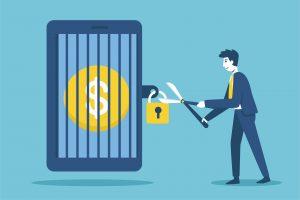The market is abuzz with words like Cryptocurrency, Bitcoin, and the prices of these cryptocurrencies. As the crypto market evolves on the foundations laid over a decade, the need to manage crypto assets has become essential. Crypto assets are similar to any other hard-earned asset and effort-based returns. Whether you are a novice or a professional, the mechanism to develop and create a blueprint, where our digital assets are safe, secure, and manageable, is a segment on its own and requires research and analysis.
Crypto asset management and crypto wealth management go hand in hand with asset accumulation. Regardless of where you are in your crypto journey, we’ll be discussing ways on how you can manage your crypto assets.
What are Crypto Assets?
Crypto assets are generally a subsection of digital assets. They cover cryptocurrencies and NFTs and represent value in exchange and trade. These are stored digitally and handled through blockchain technology and secure their transactions via cryptographic encryption. They open many channels for value, trade, and investments by decentralization.
What is Crypto Asset Management?
Crypto asset management is similar to traditional asset management, and it exclusively deals with tokenized assets traded and stored through blockchain technology. It is about monitoring, buying, and selling investments, optimizing portfolio diversification, balancing risk, and increasing returns.
Services provided by crypto asset managers include:
- Backup wallets to secure keys
- Physical storage spaces
- Vault solutions
- Asset managers
- Wealth managers
- Crypto trackers, wealth trackers
- Provision of codes instead of private keys to recover wallet information
Asset accumulation demands safety allocation and proper management from beginner to expert users. Depending on the crypto holder’s need, subscribing to cryptocurrency experts for third-party services and asset management is a personal choice. While a crypto asset management fund can be slightly expensive, choosing the right asset management and analyzing the cost-benefit ratio is essential to growing your portfolio.
Crypto Guide for Beginners
As beginners, it is understandable that you are new to this world, and listening to popular channels and predictions; many buying decisions are made. A trial round is played where profit and loss are anticipated with low investments and expectations.
Crypto guide for beginners is primarily from exchanges rather than wallets. These platform-based exchanges do manage and view your assets. As it is beneficial at the beginning, some risks entail.
The exchanges manage assets and convert tangible currencies (USD, INR) but wallets allow you to store assets and maintain the key to maintain crypto ownership. While someone else manages your crypto in exchanges, only you handle your crypto in your wallet. Such a wallet is available on a crypto asset management platform like Coinbase.
Crypto Asset Management for Experts
After gaining experience, many wallets and third-party operators come into the picture. Along with hardware wallets, crypto experts may use multiple wallets like:
Custodial Wallet – These are hot wallets that are digital and handled by a third party.
Mobile Wallet – These are on your phone and can be both custodial and non-custodial that work on software.
Desktop Wallet – These are one of the most secure digital wallets. They are kept on your laptop or computer desktop, and the owner controls their wallet and asset management.
What is the best way to manage cryptocurrency?
Managing cryptocurrency and allocation of assets is core to safety and security. One can explore many options to decide on how it is best managed. Given the research and analysis, it is said that hardware wallets are the safest.
A hardware wallet can be stored in your closet, free from any hacker, or malware attack, safe for storing copies of seed phrases, and well within our control. The responsibility ultimately lies on the crypto holder.
On the other hand, having a custodial wallet with an exchange is also a good option. It is often a combination of hot and cold wallets that can be accessed through an account.
As an account holder, you can:
- Never share your seed phrase
- Learn to stop responding to phishing on emails and texts
- Don’t store seed phrases on a device when connected to the internet
- Keep long-term holdings in cold storage
- Double-check a website’s URL before connecting your wallet or downloading software
- Don’t trust anyone that offers fast and guaranteed returns
How should I allocate my crypto portfolio?
A crypto portfolio is a set of cryptocurrencies one has invested in or chooses to invest in. Modern-day investment models support the diversification of assets as a way of minimizing losses. Crypto portfolios can be allocated by assessing various factors.
- Market capitalization
- Geographical location
- Expected returns
- Risk tolerance
- Liquidity
- Research and Analysis
- Hold Bitcoin and Ether are they are the most established ones
Can you manage crypto for others?
Managing crypto for others is possible, but letting that person take care of it independently is better. If you aren’t a crypto asset manager, it is advisable to take the help of a professional, as crypto assets are prone to volatility.
How to become a crypto asset manager?
Crypto asset management platform is a new breed in the asset management companies category. Like traditional asset managers, there is a new stream of the profession in cryptocurrencies and their subsequent professional profiles. Becoming a crypto asset manager requires knowledge, skills, and professional expertise. They save time, give exposure to the cryptocurrency market, personalize your portfolio, manage risks, and reduce emotional investing. The crypto asset manager requires:
- Bachelor’s degree in computer science, information technology, economics, finance, or any related field.
- Knowledge of digital asset management software.
- Strong communication skills.
- Several years of prior management experience with the specific asset management system.
- Learning about library sciences, digital archival methods.
Many crypto asset management platform manage your digital assets and construct portfolios—for example, Multicoin Capital, Grayscale Investments, and Wave Financial.
Conclusion
Individual investors can manage crypto assets, platform-based exchanges, and asset management companies. What future the assets hold is dynamic. Therefore, a system of AI-enabled technology and blockchain asset management for asset portfolio construction is the need for such a diverse cryptocurrency volume. It shall help make an asset holder quantify their options and help in making investment decisions. The future of crypto management lies in technology and the security of assets where managers can look after the investor’s assets in a calculated manner.






